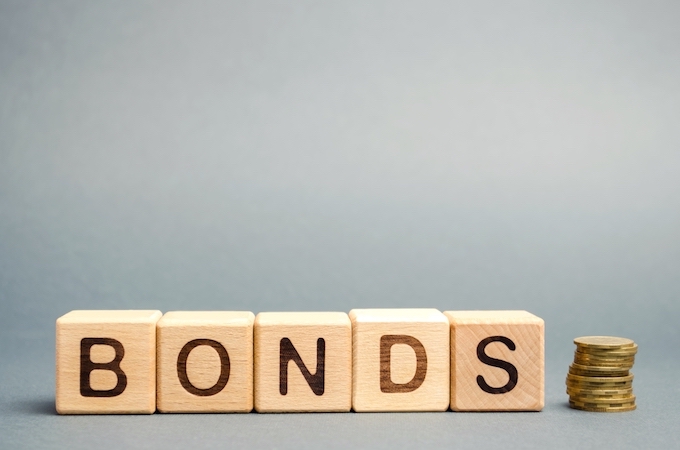
What’s a bond?
In the last lesson, you learned about stocks, which is ownership in a company. What’s a bond then? Well, it’s not ownership. Instead, it’s an IOU.
Imagine you have a friend who needs to borrow $1,000 from you. If you lend her the money, she gets the cash and you get what? A grateful friend, but what else? You get her promise to pay you back. Yeah, she gets cold hard cash and you get a promise? Yup, that’s pretty much what a bond is. It’s a promise to pay you back.
It’s not just friends who are hard up that come looking to borrow money. Companies borrow money, too.
When they borrow money, they issue these IOUs called bonds. They are promises to pay back all the people who lend them money. Get it? It’s a bond, a sense of togetherness, to be joined. You and the company now are joined and have a bond.
But unlike a friend, where you may lend them a $100 and tell them to give you a $100 back, if you lend a company money, you’re going to want more than just your $100 back. I mean, why would you give some company your money just so you can get the same amount of money back? Well, you wouldn’t. You’d want to get a little (or maybe a lot) more back.
This is why people invest in bonds.
How do bonds work?
Here’s how it works. You lend the company money and the company promises not only to pay you back, but along the way, they will give you a little more. This “little more” is what is called interest.
“A bond is a promise to pay you back what you lend a company, plus a little extra called interest.”
So you lend a company $1,000, and you agree that the company has to pay you back the original amount you lent them in one year, which is called the principal. In addition, the company will give you an extra $100. This extra $100 is the interest.
Bonds are also called fixed income.
Why? Usually, when you own a bond, you get these interest payments every six months. So, in that example, they would give you $50 after the first six months and then $1,050 at the end of the year. Why $1,050? The $1,000 was your original principal, and the extra $50 was the second interest payment.
Unlike a stock where you have real ownership in the company, when you own a bond, you have no ownership in the company. Just like when a friend borrows money from you, you don’t own them. You just have their promise to pay you back. That’s what you own, a piece of paper that says, “I owe you such and such.”
Can you lose money? You bet. If the company breaks their promise and decides they can’t pay you back, then you might not get the money you lent them. That’s a real risk.
Quick recap.
A bond is a promise to pay you back what you lend a company, plus a little extra called interest. You don’t own any part of the company when you own a bond. You just own the IOU, the piece of paper with their promise.
The proceeding blog post is an excerpt from Get Money Smart: Simple Lessons to Kickstart Your Financial Confidence & Grow Your Wealth, available now on Amazon.


About the Independent Financial Advisor
Robert Pagliarini, PhD, CFP® has helped clients across the United States manage, grow, and preserve their wealth for nearly three decades. His goal is to provide comprehensive financial, investment, and tax advice in a way that is honest and ethical. In addition, he is a CFP® Board Ambassador, one of only 50 in the country, and a fiduciary. In his spare time, he writes personal finance books. With decades of experience as a financial advisor, the media often calls on him for his expertise. Contact Robert today to learn more about his financial planning services.



